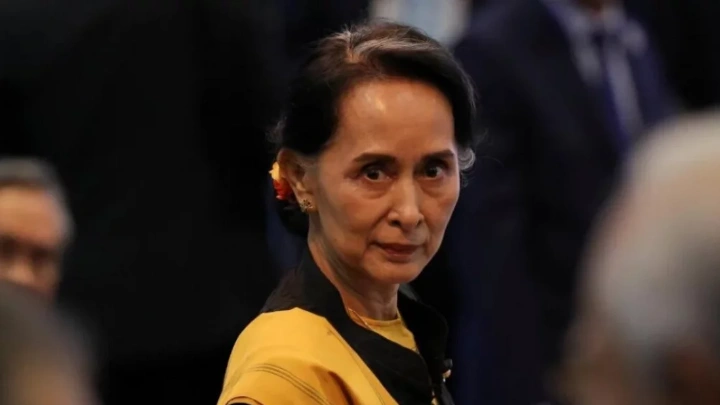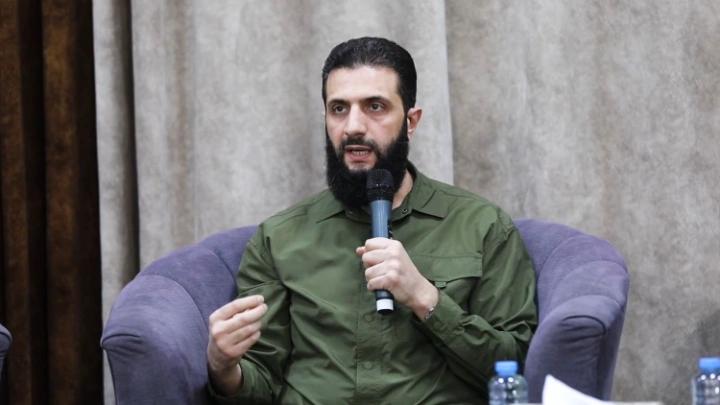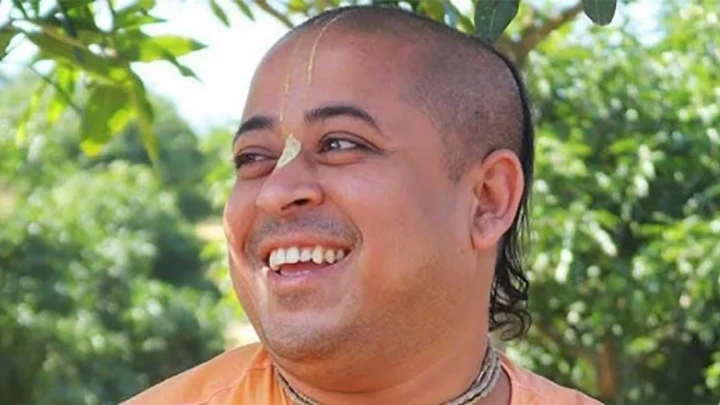Why was Aung San Suu Kyi moved to house arrest?
DW || Shining BD
Myanmar officials have confirmed that ousted democratic leader Aung San Suu Kyi is now under house arrest after spending years in prison. Former Myanmar president Win Myint has also been transported out of prison. Their present whereabouts were not clear.
According to a representative of the Myanmar’s State Administrative Council (SAC), the two politicians were moved to shelter them from sweltering temperatures, which recently hit 40°Cin the capital, Naypyidaw.
But some are now speculating that the ruling junta might use Suu Kyi in a bid to sow disunity among its opponents, as it faces escalating pressure from a rebel alliance of different ethnic groups and civilian-led forces.
Suu Kyi a ‘prime bargaining chip’
The ouster of Suu Kyi in a February 2021 coup sparked a crisis that started with mass protests and escalated with the ongoing armed uprising against military rule. The 78-year-old leader has rarely been seen in the past three years, with even her legal team reportedly unable to meet her in person since December 2022.
Independent Myanmar analyst David Scott Mathieson said that moving Suu Kyi to house arrest could make potential negotiations with the rebels easier.
“The reasons for the change could well be concerns for her health. She’s a 78-year-old in a dreadful prison without aircon in a blazing hot time of the year. If you are a cold-hearted general, why would you let a prime bargaining chip die of heatstroke?” he told DW.
“If having her in a guesthouse with better conditions affords some semblance of talks between her and the junta, that could potentially be positive, but only if it leads to some genuine process of getting the junta out of power and ending violence,” he added.
“We shouldn’t be falling into the trap of making Suu Kyi’s involvement in political solutions essential: it’s not anymore,” he said.
Junta denies reports of Suu Kyi’s health issues
Suu Kyi was sentenced to 33 years in prison on a variety of charges imposed by the junta, although six years were removed following a partial pardon in 2023.
Sources close to Suu Kyi say she has had chronic gum disease and suffers from low blood pressure. Suu Kyi’s son, Kim Aris, said last year that his mother had been vomiting and suffering from dizziness and was being denied access to recommended healthcare. She was previously held in solitary confinement, according to Kim.
However, the junta has denied reports about Suu Kyi’s ill health, insisting she has received regular check-ups from doctors in prison.
Junta under pressure
The move to house arrest comes as Myanmar’s military junta has suffered a series of defeats by various armed ethnic groups. The groups claim to control at least 60% of Myanmar’s territory.
The rebel groups are backed by Myanmar’s National Unity Government (NUG), which claims to be Myanmar’s legitimate administration.
NUG Minister of International Cooperation Dr Sasa said that the claims of Suu Kyi were being moved due to the heat ring hollow.
“If any harm befalls Daw Aung San Suu Kyi and U Win Myint, the Myanmar junta leaders will bear direct responsibility and will be held accountable by the people of Myanmar,” he posted on X, formerly Twitter.
The NUG is reportedly concerned that Suu Kyi could be placed at crucial military strongholds, putting her in harm’s way as rebels attack.
The rebels have even managed to target Naypyidaw despite it being well fortified by the military. The capital has come under unprecedented drone attacks on junta bases and airfields in April.
“The drone and rocket attacks on Naypyidaw have caused little physical damage or casualties, but they have caused psychological damage; it is their fortress capital and the physical manifestation of the bubble that the generals live in,” Zachary Abuza, a professor at the National War College in Washington who focuses on Southeast Asia politics and security, told DW.
“Attacks in Naypyidaw are meant to show that there is no place where the generals are safe,” he added.
No unity among rebels
With the junta under pressure, some observers suggest that the military leader will try to use Suu Kyi to gain support from the Bamar people or Burmans, the largest ethnic group in Myanmar, against the growing influence of minority groups.
“There is really no vaunted ‘unity’ amongst the NUG, People Defense Forces, and Ethnic Armed Organizations. It’s been contrived by exiled elites and foreign lackeys, but if any factor is almost certain to cause division within the anti-SAC opposition, it’s Suu Kyi.” Mathieson said.
While Suu Kyi is still revered by many in Myanmar, she has also been criticized for being too submissive to the junta during her time as the country’s top civilian leader.
Her international reputation took a major hit over her denial of the Rohingya genocide in Myanmar in 2016 and 2017. Prominent youth activists have already dismissed her as the face of the revolution. Her fate could cause division among many groups fighting the junta rule.
However, political calculations may fade into the background as the junta faces morale problems of its own — it is losing soldiers to attacks, surrenders and desertion as rebels move in.
The authorities have activated a decade-old military conscription law in February , aiming to secure 60,000 new recruits a year. The junta has also been trying to fill its ranks by recruiting soldiers from the Rohingya ethnic minority group, the same group that was targeted by the military in 2017, leaving at least 10,000 Rohingya killed and 700,000 displaced.
Shining BD
























